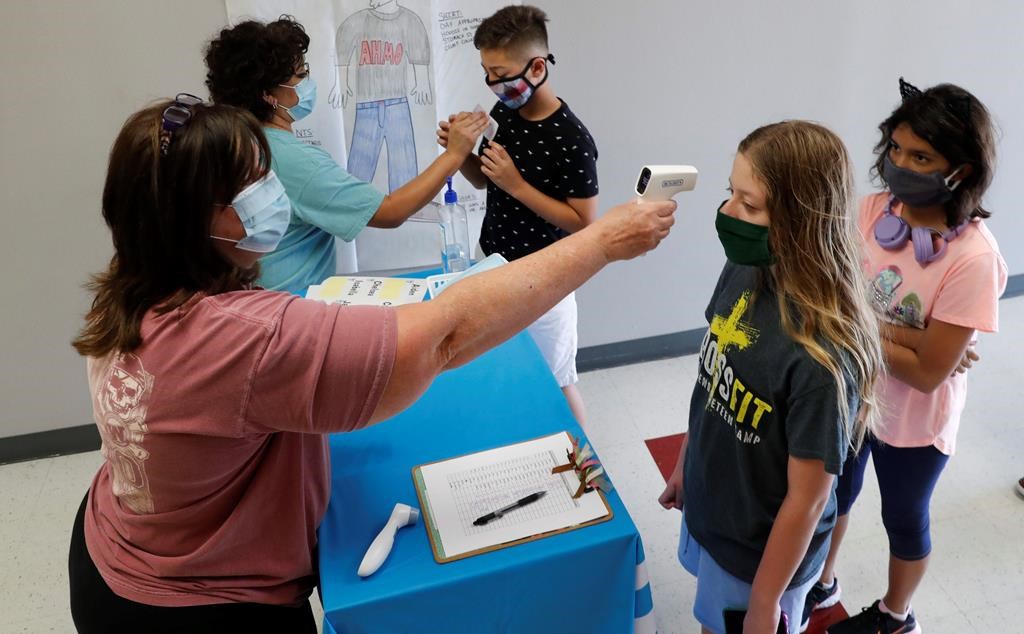The director of the Applied Health Research Centre at St. Michael’s Hospital in Toronto says it’s far too early to definitively say that children don’t transmit COVID-19 the same way as adults.

Dr. Peter Juni, who is also a researcher with Ontario’s COVID-19 science advisory table, made the comments after B.C. Premier John Horgan told reporters Wednesday that “the evidence is fairly clear that children are not transmitters.”
“We have demonstrated that we can operate our K-12 system safely. There are isolated outbreaks but again, we have to put all of this in context. We are living with COVID-19 in our community,” Horgan said.
“Adults working within the K-12 system are bringing the virus into the classroom and into schools and that’s led to outbreaks in pockets of British Columbia.”
But Juni called that statement “problematic.”
“The evidence is fairly clear that we don’t actually know what we’re talking about,” he told Global News.
A report he co-authored for the COVID-19 Advisory for Ontario found that studies conducted early in the pandemic that hypothesized children play a less prominent role in transmission were biased by the fact that far fewer children were being exposed to the coronavirus at that time, with many schools around the world closing their doors.
- Dog put down after fatal Surrey attack against another in January
- Ontario family calls for changes after their 26-year-old son received MAID in B.C.
- What’s happening in Surrey is a ‘terror attack in slow motion,’ B.C. premier says
- Camping fees increase for 59 B.C. parks, non-residents to pay a surcharge
He said because younger children are also more likely to be asymptomatic, they weren’t being tested as frequently as adults.

Get breaking National news
And with new evidence and studies rolling out, Juni said it’s too early to make conclusions on the role of younger children in transmission.
“We’re simply not sure how important the role of younger children is. But what is relatively clear is that the role of children above the age of 12 is comparable to the role of adults,” he said.
Juni said there are important societal reasons behind keeping schools open during the pandemic.
“You first close the bars and clubs because they’re less a priority than to have the schools open. But at the same time, you know, at the same table, we acknowledge that we are not sure about the role of young children in this in this entire situation that we are in,” he said.
“Whereas for the older children, we deal with the older children here (in Ontario) just the same way as we deal with adults and we assume that they have the same risk of transmitting and the same risk of getting infected as an adult.”
B.C.’s provincial health officer, Dr. Bonnie Henry, has repeatedly said that keeping schools and businesses open is essential to the province’s pandemic response, and has linked COVID-19 exposures in schools to transmission within the community, rather than the other way around.
However, the province is considering the possibility of extending the Christmas break amid a surge in COVID-19 cases in B.C.
“We can see that transmission rates are less in schools than they are in other parts of our communities, and we know they are also incredibly important for families and for children to have in-person, in-class schools,” Henry said at a briefing on Monday.
“But we’re looking at all of our options — there are a whole bunch of things that are happening hopefully within the next months.”
— With files from Richard Zussman









Comments